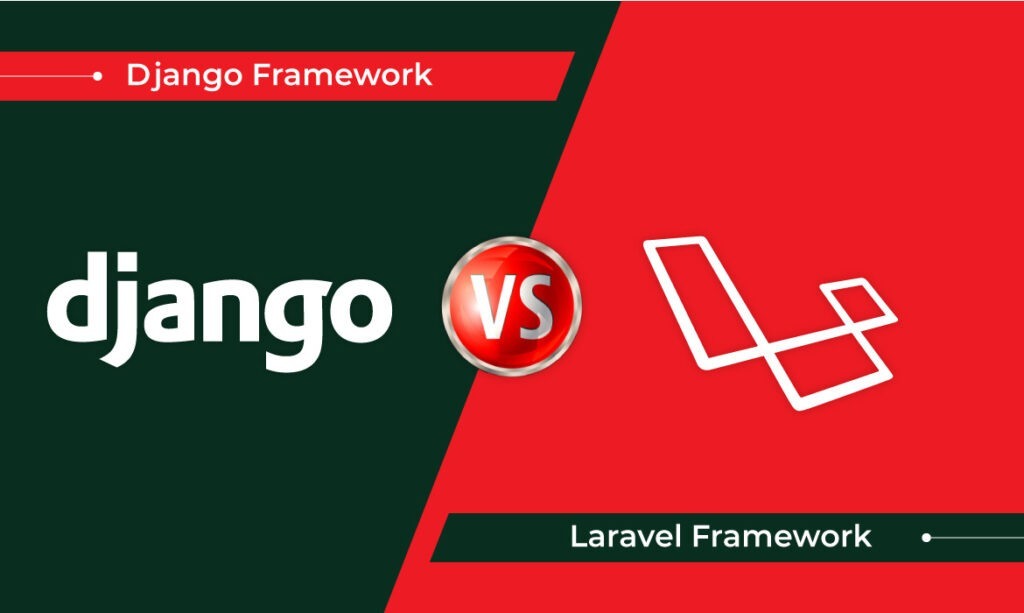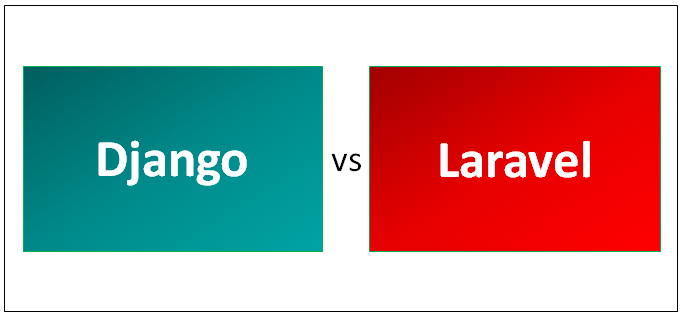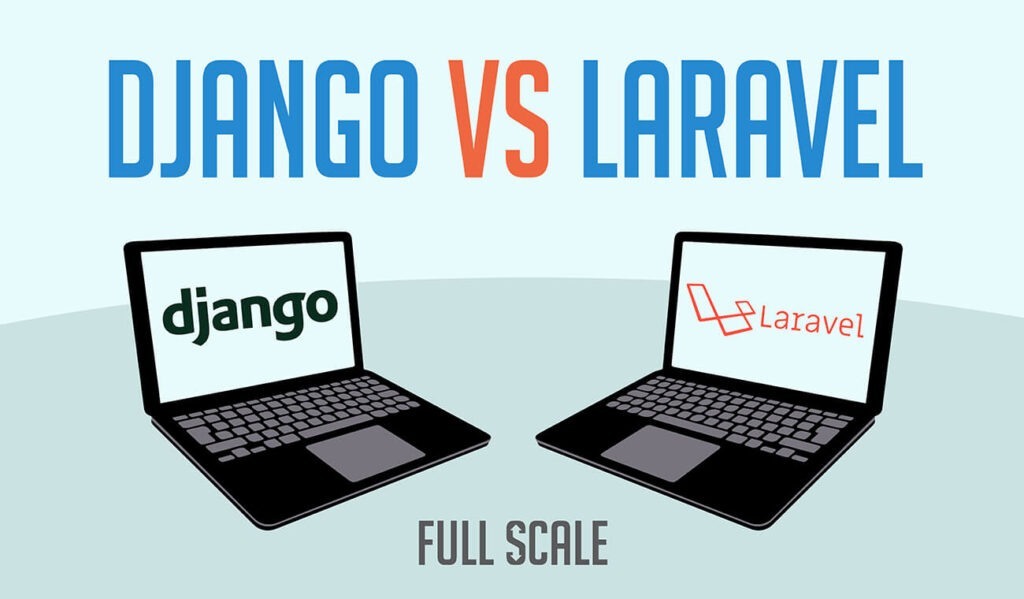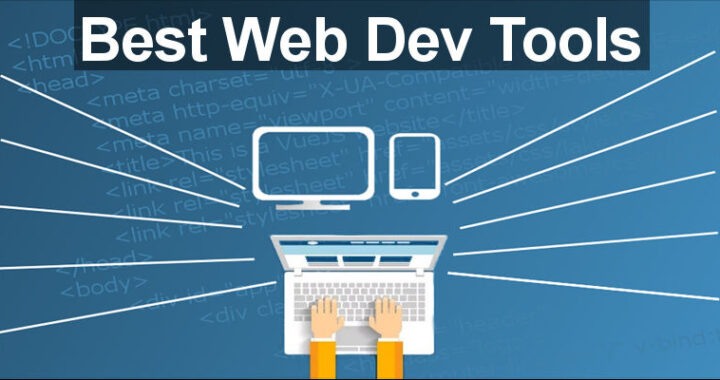Laravel Or Django : 5 Comparative Points to Choose

Whether you own a start-up or a well-settled business, choosing the right platform for web development has always been a difficult task to do. This is because development concerns various crucial factors like scalability, security, performance, community support, API, etc., and all these need a robust back-end framework. There is no doubt that Laravel and Django have established a great name in the web development world. Therefore, the real question that pops out here is which one of them is better?
Well, to answer this, we have done a comparative analysis between these two best-in-class frameworks in this article. Based on the study, you can easily choose which one would be better to serve your business requirements. Picking up the proper framework will also help you decide whether you should hire Laravel developers or Django ones. So, let’s start our search for a better back-end framework between the two best ones in the market.
Laravel and Django: An Overview
Let’s start this faceoff with a brief background about both frameworks. So, Laravel was developed by Taylor Otwell. MIT licensed it and initially launched it in 2011. One should be proficient enough in PHP to work on Laravel. Based on Symfony, it provides reusable PHP libraries/components. Moreover, HTML authentication, templating, routing, and many other excellent features make it a perfect choice for creating Content Management Systems (CMSs), full-stack applications, and managing SaaS products.
Pros of Laravel
- Simple and intuitive routing
- Powerful template system
- Inversion of Control (IOC) support and built-in CI
- Dynamic and built-in language
- Easy maintenance with changing web trends
Cons of Laravel
- Beginners can face issues with serious security holes
- Less mobile support for web applications
- The learning curve is steeper compared to Django
Now, talking about Django, it was developed by Django Software Foundation in 2005. 3-clause Berkeley Software Distribution (BSD) licensed it. Being a rapid development framework with testing features, it has already provided structure in developing many popular websites like Instagram, Pinterest, Mozilla, etc. One of the best things about Django is that it is lightweight, which makes scaling web apps pretty easy.
Pros of Django
- Provides features of mobile integration
- Multiple top-class plug-ins available
- Negligible learning curve compared to other frameworks
- Preferable for scalable and data-driven apps
- Better at resolving security issues
Cons of Django
- Unlike Laravel, developing small apps can blow it up
- No notifications about template errors
- Routing is not easy in Django

Head to head comparative analysis between Laravel and Django
Undoubtedly, both Laravel and Django have their way with Web development processes. Still, it becomes crucial to have a deep understanding of the scope of both frameworks when it comes to choosing one. So, here it is:
Learning Curve
As mentioned above, the learning curve of Laravel is steeper than Django. It does not mean that learning and working on Laravel is complex, but you need to master the available resources to skill the PHP development.
On the other hand, learning and using Django is relatively simple and easy. It offers better code readability, which helps beginners in the web development process. However, the learning curve depends on the individual who wants to understand working on a framework. A person who likes working on Python should possibly choose Django, whereas the one who is proficient in PHP will likely work on Laravel.
Security
The web development world is always prone to cyber-attacks like cross-site scripting or SQL injections. It becomes crucial for frameworks to take security measures seriously to protect the databases and sites from such vulnerabilities.
While the security level of Django is up to the mark, Laravel, on the other hand, is good but not better than the former. That’s the reason why international organizations like NASA use Django for their website development.
Coding
When it comes to coding, there is no doubt that Laravel wins the race. It is due to the simplified and clear coding that happens while working with Laravel. Contrarily, Django uses regular expressions in its routing process, which makes the codes rather complex, and thus it creates a mess for the beginners.

API Integration
Laravel comes with several pre-packaged tools that help in API building. Other than that, these tools also help in user authentication, testing APIs, and much more. On the other hand, Django does not come up with these in-built features. Therefore, API integration in Django becomes a tricky task. One has to use external API support or libraries to implement and access the same features.
Community
In terms of community support, both Laravel and Django communities have been highly responsive and active. When it comes to raw figures, Django has :
- 82K+ members on Reddit
- About 23K active watchers on Github
- Discord server has around 3.5K members
In fact, this community is rapidly increasing, and developing your website and app with Django can be beneficial for you.
Well, Laravel proves to be a strong contender in this race too. Laravel has:
- More than 46K active users worldwide
- An active community with more than 18K threads
- Around 4.7K active watchers on Github with more than 63.5K Github stars
Other than this, when it comes to server-side programming of web apps, PHP rules about 79% of the market. With such strong community support, one can quickly come out of any trouble one will face at any point in web development.

Conclusion
With the above discussion on the best framework between Laravel and Django, one can say that both of them have some advantages and disadvantages as per different parameters. While Django will provide you with high-performance and well-equipped security measures, Laravel will win the race when it comes to ease of access, routing, and templating.
In this case, choosing one over the other becomes quite a hefty task. Therefore, it is better to understand the needs of your business and the proficiency of your developers. You can hire skilled Laravel developers if PHP is their strong zone. However, for Python web development, picking the Django developers will be the right choice for your business.


 Go Online With Hostnetindia – Hosting Platform Designed For You
Go Online With Hostnetindia – Hosting Platform Designed For You  Static Website vs Dynamic Website – What Is the Exact Difference?
Static Website vs Dynamic Website – What Is the Exact Difference?  How web service for development is beneficial in Covid-19
How web service for development is beneficial in Covid-19  What does a website design agency do?
What does a website design agency do?  Important things to note when hiring an eCommerce website developer
Important things to note when hiring an eCommerce website developer  Top 7 most Essential Web Development Tools to Use
Top 7 most Essential Web Development Tools to Use